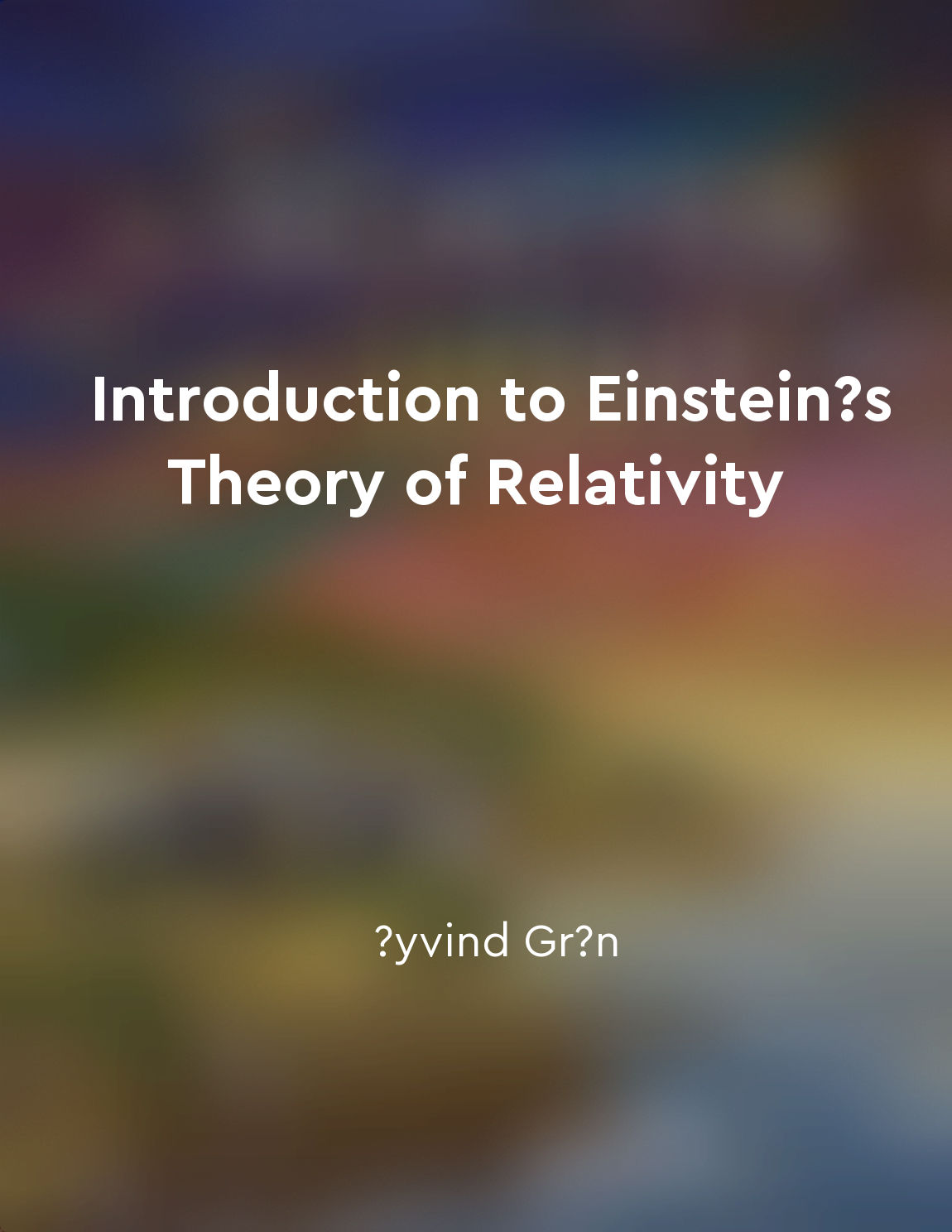Relativity of simultaneity from "summary" of Introduction to Einstein’s Theory of Relativity by Øyvind Grøn
The concept of relativity of simultaneity discusses the idea that two events happening at the same time for one observer may not be simultaneous for another observer, depending on the relative speed of the two observers. This phenomenon is an integral part of Einstein's Theory of Relativity.- Relativity of simultaneity is the idea that whether two events appear to happen simultaneously is relative to the observer viewing it. This means that what one person may see as simultaneous can be seen at different times by another (due to their distanced perspectives..
- The concept of the relativity of simultaneity is best understood through the example of a pair of lightning bolts striking on top of two mountains each located miles apart from each other. To an observer standing between these mountains, the bolts would occur at roughly the same time. However, for someone situated on far side of either mountain, one bolt would likely be partially visible just before the second strikes.
- With the theory of relativity, Einstein concluded that when observing from different frames of references, points in space and time wouldn't actually exist separately but rather become intertwined.
- Therefore, what seems simultaneous to one observer appears to have occurred with a delay to another and this concept emphasizes that interval and relative position are important considerations when attempting to describe temporality.
- This remarkable realization of time being relative depending on an individual's perspective implies that physical laws remain true despite spatial locations or the speed of passing time.
- Einstein's theory of relativity also provided further insight into the increased time dilation effect which results from motion relative to another object or frame of reference, wherein an observer might measure a ticking clock to move slower while in motion compared to when they are stationary.
- At its core, the relativity of simultaneity states that the perception of time isn't a shared experience but instead a personal interpretation subject to the laws of physics in order to determine the reality of an event.
- This implications of this discovery were revolutionary since suggested that notions of absolute time or simultaneous happening of events had no real objective meaning any more.


